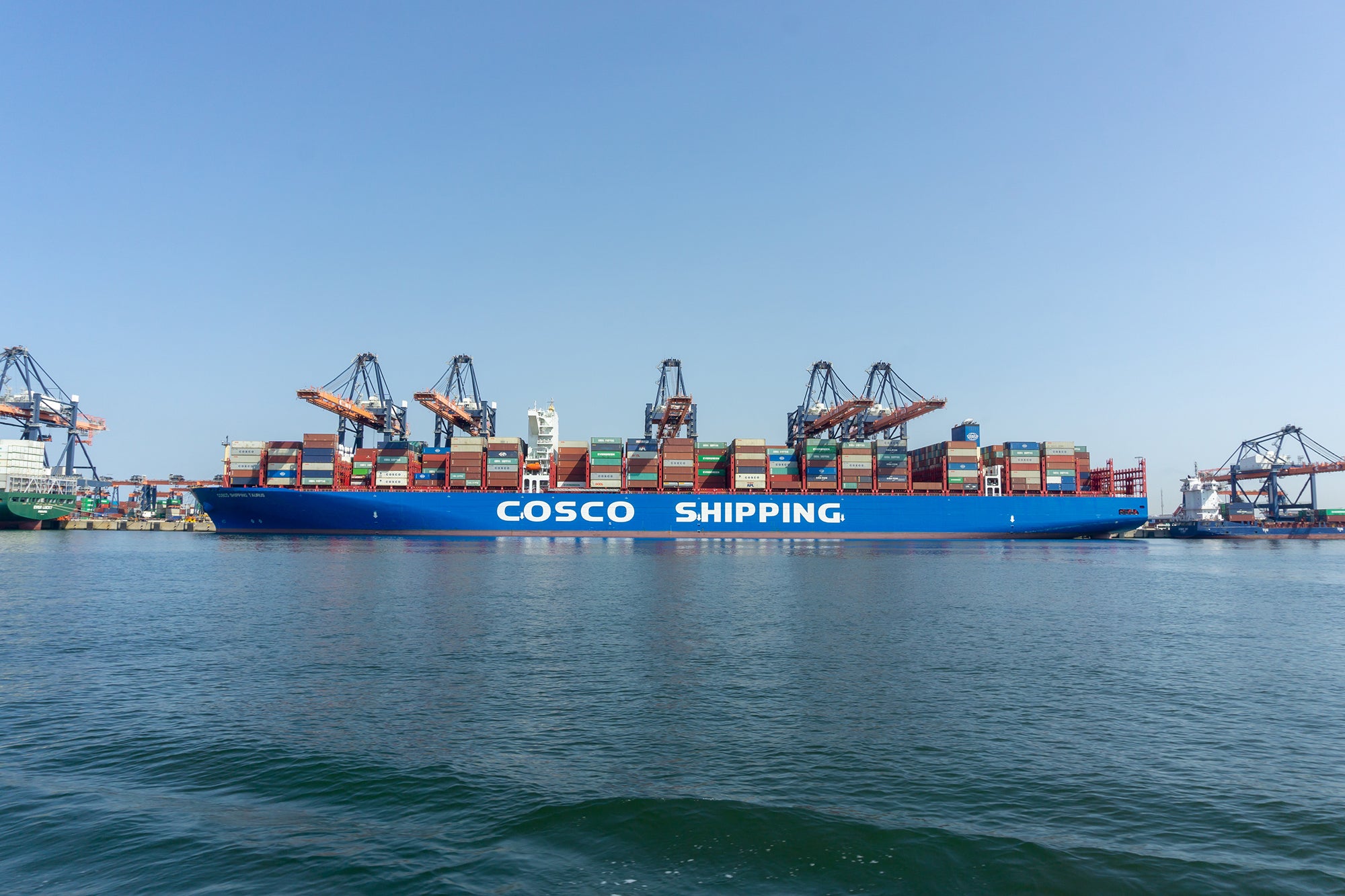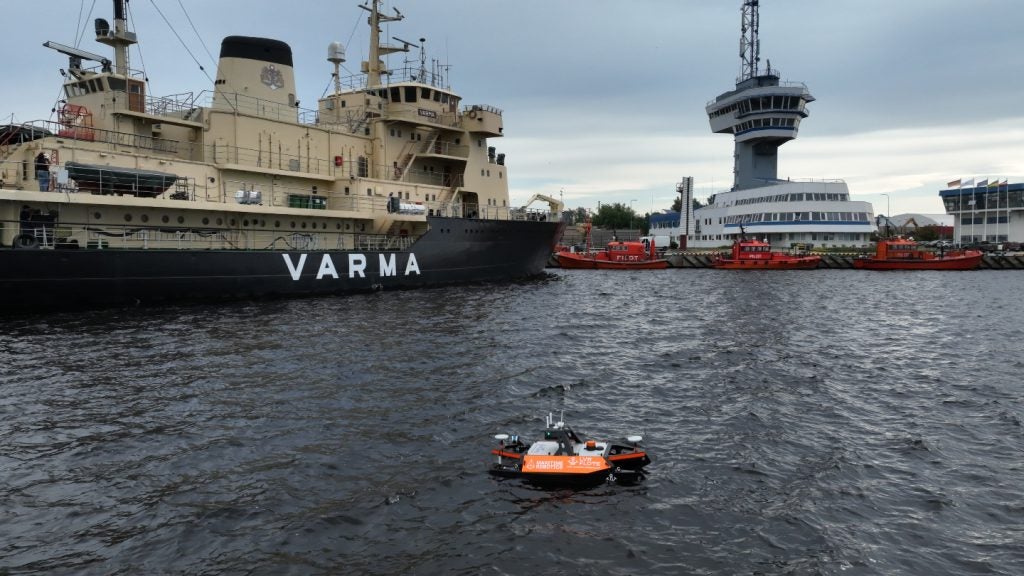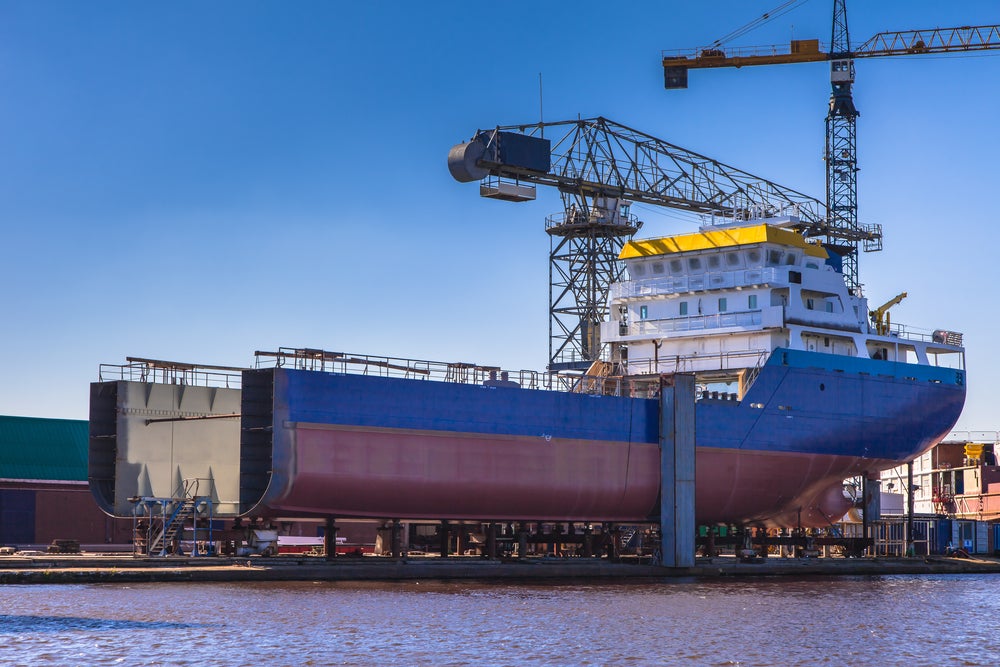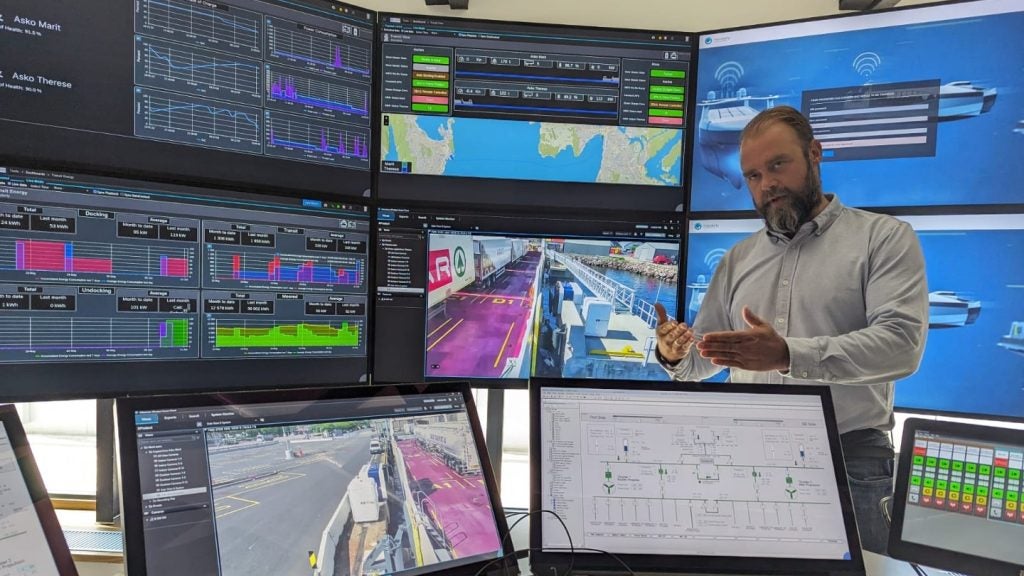
In October this year, Cosco Shipping confirmed the acquisition of shares valued at just less than 25% in Container Terminal Tollerort in the Port of Hamburg, Germany. The company originally expected to gain a 35% stake, but the federal government decided on 24.9%.
Container Terminal Tollerort in the Port of Hamburg is considered to be important as a logistics hub. Other benefits that have been considered are the good location, water depth, efficient operations and management capabilities.
Hamburger Hafen und Logistik AG (HHLA) first collaborated with China on business opportunities 40 years ago with the first vessel from China to arrive at Tollerort Terminal in 1982.
Angela Titzrath, CEO of HHLA, says: “Neither the CTT nor the HHLA nor the Port of Hamburg will be sold to China. HHLA remains an independent, listed company with the Free and Hanseatic City of Hamburg as the most important owner.
“With the entry of CSPL, the CTT will become a preferred hub for Asia traffic. HHLA retains sole control over all key decisions. Cosco does not receive any exclusivity rights at the CTT – the terminal remains open for container volumes from all customers. CSPL also has no access to strategic know-how, IT and sales data remain the sole responsibility of HHLA. German law continues to apply in all matters.”
CSPL expects Container Terminal Tollerort to bring stable earnings and provide high-quality services for customers.
How well do you really know your competitors?
Access the most comprehensive Company Profiles on the market, powered by GlobalData. Save hours of research. Gain competitive edge.

Thank you!
Your download email will arrive shortly
Not ready to buy yet? Download a free sample
We are confident about the unique quality of our Company Profiles. However, we want you to make the most beneficial decision for your business, so we offer a free sample that you can download by submitting the below form
By GlobalDataCosco Shipping Ports’ portfolio covers the five main port regions in Mainland China, Southeast Asia, the Middle East, Europe, South America and the Mediterranean.
Cosco Shipping Ports’ overseas portfolio includes Piraeus Terminal (Greece), CSP Zeebrugge Terminal (Belgium), CSP Abu Dhabi Terminal, CSP Valencia Terminal (Spain), CSP Bilbao Terminal (Spain), CSP Chancay Terminal (Peru), Suez Canal Terminal, Kumport Terminal (Turkey), Antwerp Terminal (Belgium), COSCO-PSA Terminal (Singapore), Busan Terminal (South Korea), Seattle Terminal, Euromax Terminal (Netherlands), Red Sea Gateway Terminal, Vado Reefer Terminal and Vado Container Terminal.
In addition, 20 years ago China loaned Sri Lanka over $1bn to build the Hambantota port but in 2017 China took ownership of the entire port on a 99-year lease after Sri Lanka was unable to pay its debts.
Concerns have been expressed about China’s influence in relation to significant port infrastructure and the country’s latest acquisitions.
Titzrath says: “The cooperation between HHLA and Cosco does not create any one-sided dependencies. On the contrary: it strengthens supply chains, secures jobs and promotes value creation in Germany. Smoothly functioning logistics is a basic requirement for global trade flows and prosperity.
“Progress and security can only exist on the basis of cooperation, common goals and interests. The cooperation between the two partners also strengthens the position of the Free and Hanseatic City of Hamburg as a logistics hub in the North and Baltic Sea regions and of the Federal Republic of Germany as an export nation.”
It has been suggested that the extent of China’s influence over the flow of goods could cause issues for nations in the future.
Sir Malcolm Rifkind QC, former UK Secretary of State for Foreign, Commonwealth and Development Affairs, speaking before the UK Foreign Affairs committee on 15 November, said: “The main controversy with the German Chancellor’s visit to China was not the fact that he was going there and having dialogue on trade or economics. It was a specific question of the Hamburg port and the fact that the Chinese state-owned company was going to be given what turned out to be 25% ownership of an important port.
“That is a legitimate issue, not just for Germany but it would equally apply in the case of the United Kingdom or any other European country.”
Some believe that the recent developments are being politicised beyond what is necessary and that the concerns are based on assumptions regarding China’s intentions.






